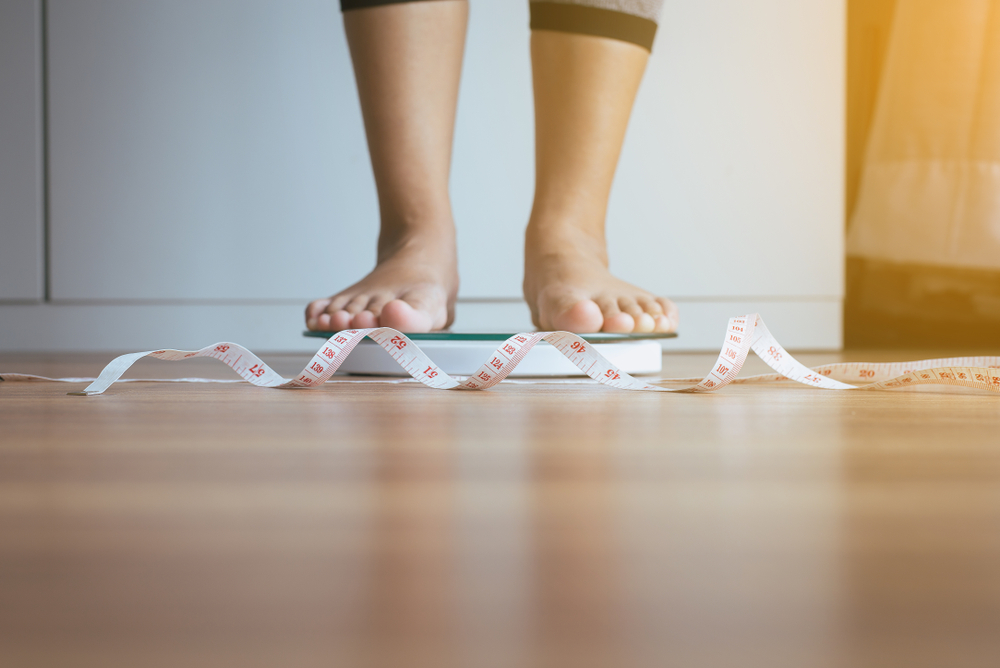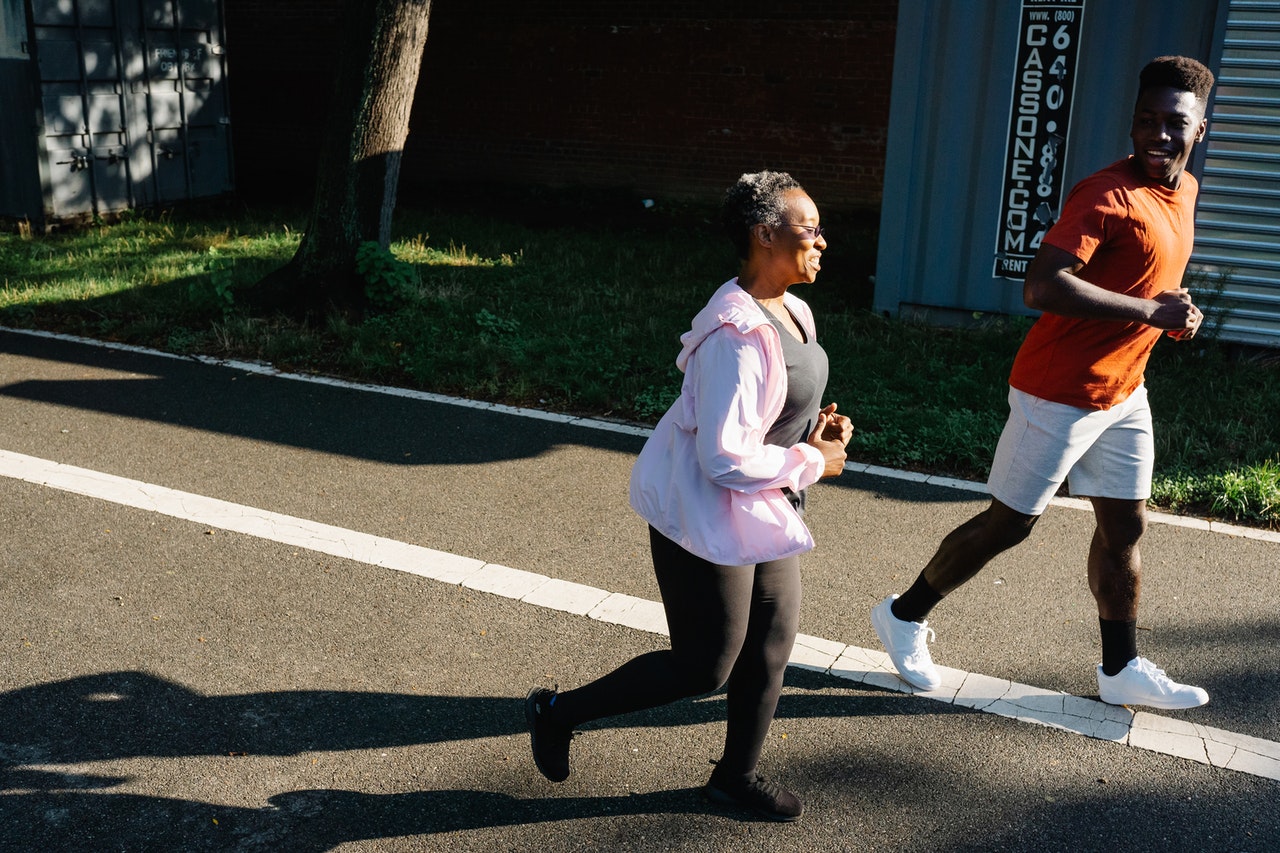Why Do You Sometimes Gain Weight After Exercising?


So, imagine how disheartening it is for some when they discover they have actually gained weight after starting a fitness regime. After all that sweating and effort this seems unfair.
Research tells us there are some explanations for this temporary predicament and the winning strategy for avoiding it is flexibility- with your exercise routine, your recovery routine, and even your meals.
Let’s take a look at why some people gain weight when exercising at a time when they are supposed to be losing it.
Eat, Drink, And Still Shrink
When people start exercising it sometimes promotes in them a false sense of security, and they believe they can eat whatever they crave. They might desire to treat themselves for their efforts, compelled to reach for high calorie goodies. Many feel ravenous after burning off calories, feeling the need to be energized instantly.
If we are looking to create our best selves, we must tune into a whole-body approach, using the latest nutrition research, calorie-counting tools, and common sense, to get slim and stay healthy after exercising.
Like it or not, calories count, so depending on your typical food preferences you may need to alter meal planning when starting an exercise regime.
Some tips:
- Cook healthy meals in batches, and portion food ahead of time so you just need to plate and heat.
- Find what works best for your body, such as smaller meals, or more healthy snacks throughout the day.
- Try doing your “macros”. This will help calculate fat loss while maintaining muscle and energy. The number of calories you need to perform basic functions such as breathing, digestion, etc, multiplies when activity level increases. Consider downloading a fitness and health calculator that will assist in metabolic calculations.
- Rid your fridge of fake food, and stay away from social events that include calorific temptations, such as day drinking, or the Sunday brunch buffet.
- Get family and friends involved in your quest. Tell them you wish for support from them, and how they can do that.
- Take a run at intermittent fasting. According to research, an upside of exercising while fasting is that stored carbohydrates — known as glycogen — are likely depleted when fasting, converting more fat to fuel during workouts. You can use intermittent fasting to drop a few pounds without affecting performance. It’s important to remember to stay hydrated and keep electrolytes up when combining fasting and exercising. (1,2)
What’s Up, Muscles?
As we work out, our muscles begin to form tiny tears, which help them grow stronger as they heal post-workout.
These tears in the tissue cause muscle cell organelles to be disrupted, allowing cells from outside your muscles to enter and repair muscle damage. The cells multiply and eventually become a component of the muscle fiber. This later aids in the formation of new muscle protein strands, allowing muscles to grow in strength for future workouts. So, the more you exercise, the stronger you will become and the more intense a workout you will be able to tolerate. (3)
Great! But wait…
Micro-trauma for muscles is not great news unless you level up your recovery routine. That doesn’t mean just a few stretches or a hot shower.
At some point practices to help revamp our recovery routine and speed along a muscle-healing process are needed, because microtears can kick-start the body’s inflammatory process, which means swelling. This swelling can lead to extra water retention in the body. In effect, this increased water can be another explanation for after-exercise weight gain. (3)
Here are some up-to-the-moment practices that can help speed muscle recovery:
- CBD can be used to reduce post-workout inflammation. It has also been found to improve sleep quality, assisting with boosting performance. (4)
- Kinesiology Tape can be used on any body part to decompress tissues, improve blood flow, and reduce swelling. It also acts as a signal blocker from painful tissue. (5,6)
- Red Light Therapy can be used as an at-home device, or be applied by a physical therapy specialist. Low-level wavelengths of red light penetrate the skin and supercharge mitochondria, to speed up muscle recovery. (7,8)
- Electrical Muscle Stimulation helps reduce swelling by creating a pumping action that pushes fluid out of the muscles, helping athletes recover and potentially boost muscle strength. You can buy devices for home use, or have a treatment done in a professional office. Look for a TENS or EMS machine. (9,10)
- Epsom salts can infuse muscles with magnesium sulphate, helping to soothe tired limbs. Take a relaxing bath.
Metabolism Matters
The more active we are, the more calories we burn. Because our bodies naturally want to maintain their weight, when we lose weight, a mechanism known as “persistent metabolic adaptation” kicks in. This mechanism slows our metabolism and increases our appetites in an attempt to force our bodies to return to the weight perceived as normal. This is one of the reasons why some people struggle to maintain their hard-won weight loss when starting to exercise. (12)
The energy source for muscles is glycogen, or sugar that muscle cells convert to glucose. When we exercise on a regular basis, our bodies store more glycogen to fuel our workouts. Glycogen, which is stored in water, must bind with water as part of the process of fueling muscle. That water also adds a small amount of weight.
However, as our muscles become more accustomed to exercise and more efficient, they require less glycogen to maintain the same level of energy output. As a result, water retention decreases, and weight begins to decrease. You should begin to lose that initial water weight gain just a few weeks or a month after beginning a new exercise program. (13,14)
Changes in energy expenditure, mitochondrial efficiency, and circulating hormone concentrations should work in harmony to weaken further weight loss and promote the restoration of baseline body mass. (14)
Sometimes however, metabolic adaptation is needed to help to normalize hormone levels, particularly cortisol, leptin, ghrelin (the hunger hormone), and testosterone levels, even if we are burning more fat when exercising. Some of us can still need a metabolic advantage when it comes to the link between hormone sensitivity and muscle endurance. (14)
A hormone specialist can help. Widely accessible, are experts who can talk with you about hunger hormones, metabolism, and how exercising can unlock amazing benefits for your life.
Mix It Up For A Fat-Loss Exercise Plan
If progress in your exercise department has come to a standstill, variety is imperative. Try adding one or more moves to your regular muscle workout routine to get some real results. Connecting both your mind and your muscles with the stimulation of variety, has been shown to improve muscular activation and contraction. (11)
A mix of resistance training, aerobics exercises, gentle exercise, strength training, and core exercises is recommended. The more you move your body, in different ways, the healthier you will be.
Sources:
- https://www.ncbi.nlm.nih.gov/pmc/articles/PMC5050386/
- https://www.healthline.com/health/how-to-exercise-safely-intermittent-fasting#exercising-and-fasting-safely
- https://health.clevelandclinic.org/just-started-exercising-gaining-weight/
- https://www.ncbi.nlm.nih.gov/pmc/articles/PMC7338332/
- https://www.ncbi.nlm.nih.gov/pmc/articles/PMC5091062/
- https://www.mcdavidusa.com/blogs/posts/kinesiology-tape-can-help-quickly-recover-workout
- https://www.chiropracticandsportsrecovery.com/joovv-light-therapy/
- https://www.ncbi.nlm.nih.gov/pmc/articles/PMC4126803/
- https://www.healthline.com/health/pain-relief/e-stim#types
- https://journals.lww.com/nsca-jscr/fulltext/2012/09000/electromyostimulation_a_systematic_review_of_the.38.aspx
- https://www.helpguide.org/articles/healthy-living/what-are-the-best-exercises-for-me.htm
- https://www.livescience.com/32362-what-does-fast-metabolism-mean.html
- https://www.ncbi.nlm.nih.gov/pmc/articles/PMC6019055/
- https://jissn.biomedcentral.com/articles/10.1186/1550-2783-11-7









